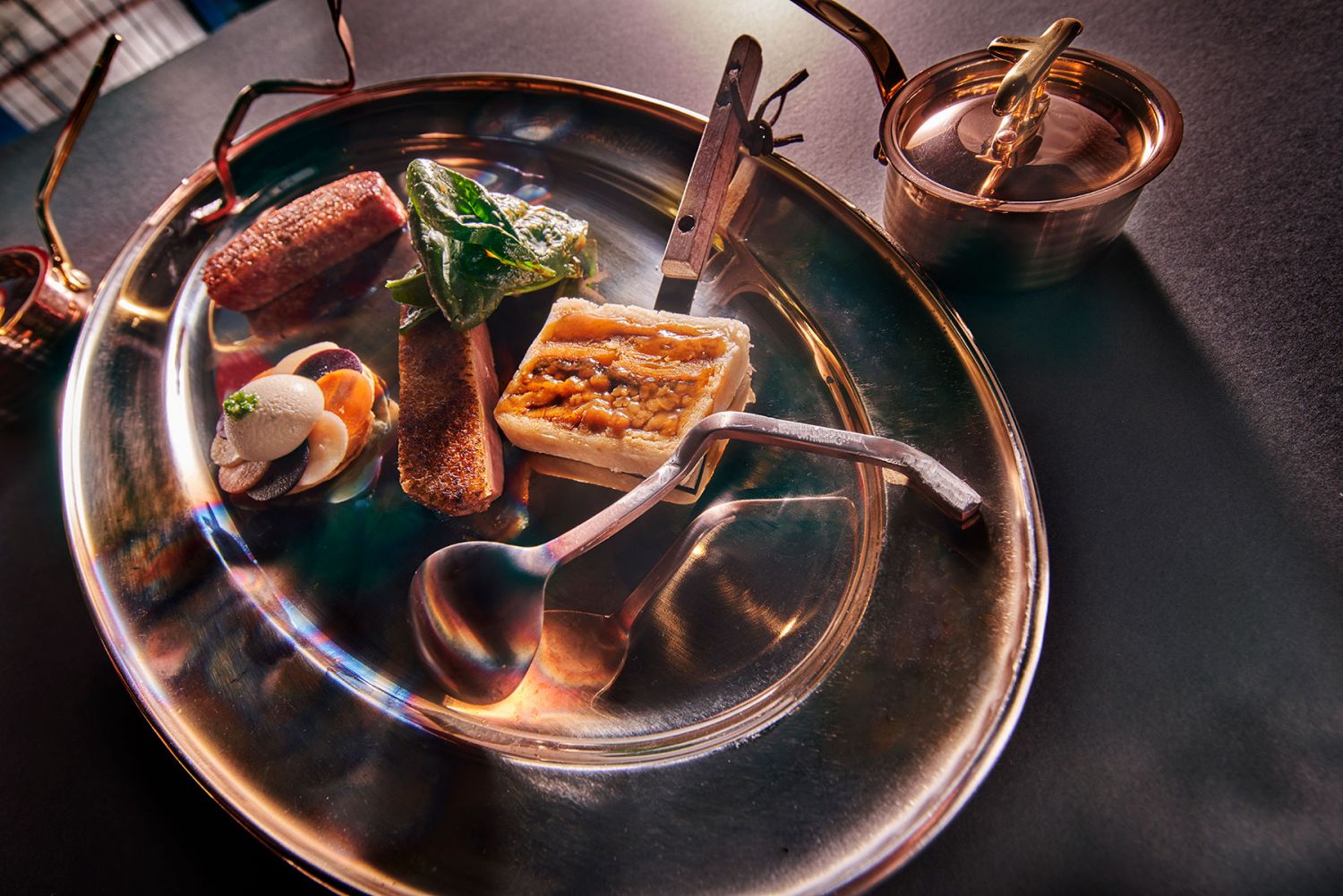Having built his original restaurant into a homage to Hong Kong, Bo Innovation’s Alvin Leung ponders his rapidly changing home as he reopens his restaurant in the midst of societal upheaval
Alvin Leung is the personification of sheer will. When Tatler meets him for a coffee on a grey, humidity-drenched morning before he’s due to fly out of Hong Kong, the self-proclaimed “Demon Chef” immediately demonstrates a remarkable ability to occupy space: his voice booms as if amplified by an invisible megaphone, and he gestures often and vigorously, occasionally threatening to discombobulate the customers sitting nearby.
“I think the best thing to say about me is my control of the unpredictable,” he says. “I think the main element is surprise, and my unpredictability is an attraction.”
The surprise he’s referring to in this case is the relocation of his original claim to fame, Bo Innovation, from its long-time Wan Chai location to a new home in Central’s H Code building. Perhaps it was time: despite being predicated on an “X-treme Chinese” culinary philosophy designed for maximum shock value—the best example being a dish called Sex on the Beach that resembled a used condom—Bo Innovation had been quietly and dependably plying its fusion molecular gastronomy for years, serving “The Hong Kong Story” menu to a steady stream of gastronomes, many visiting from abroad. While the restaurant retains an admirable two Michelin stars, it’s nevertheless a conspicuous drop from a golden four-year run of three Michelin stars between 2016 and 2019.
“I’m not that nostalgic, you know. It’s been a very good run—but we didn’t actually stop the run. I just wanted to change. We’ve been there [Wan Chai] for almost 13 years; it’s time to move on to something new,” he says.

It’s been a very good run—but we didn’t actually stop the run. I just wanted to change.







